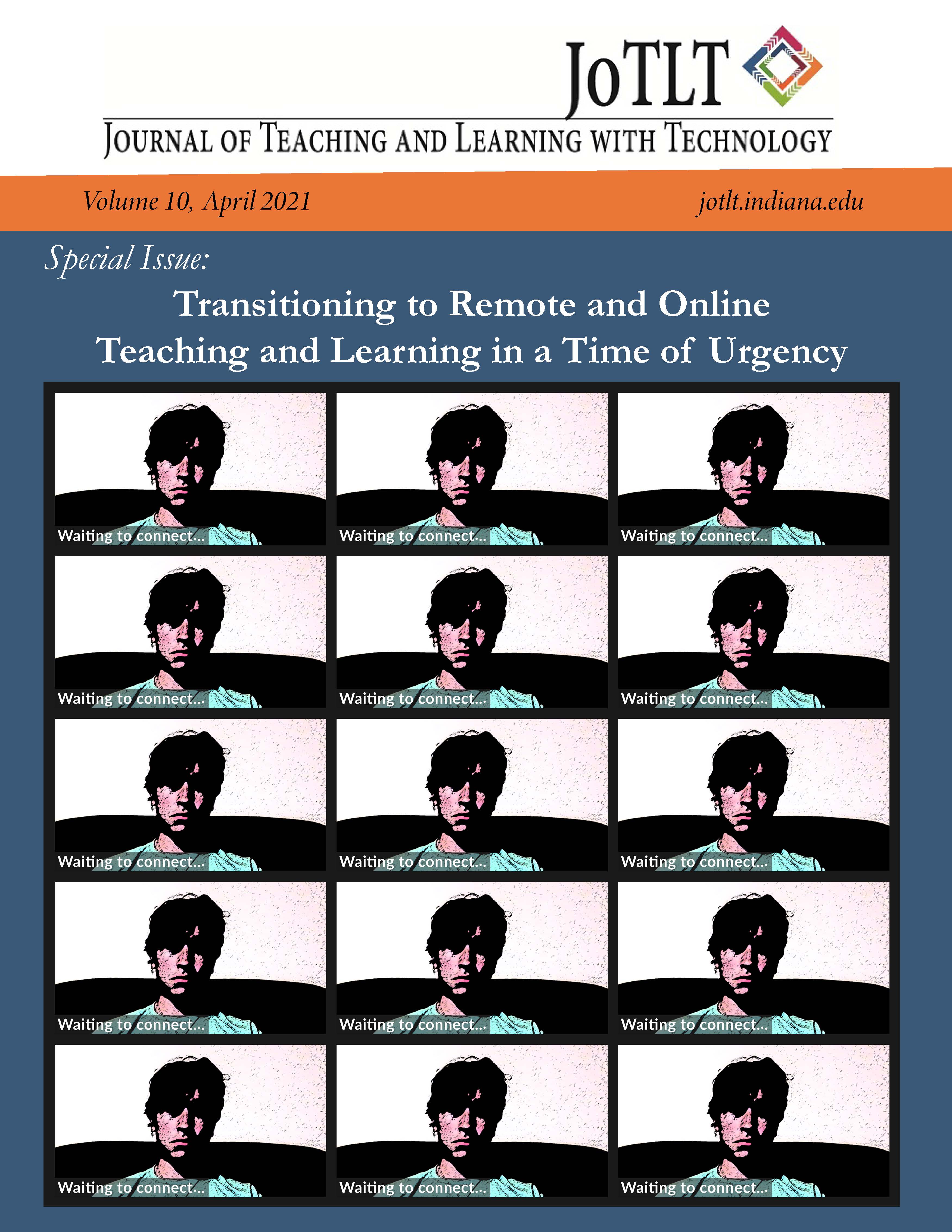All Aboard! Getting Faculty Mobilized for Emergency Online Teaching
Main Article Content
Abstract
This reflective essay describes steps taken by Business faculty in a U.S. Midwestern mid-sized regional university to assist faculty in making the rapid transition to 100% online teaching. These steps include the development of an online course template within the university’s course management system made available to all faculty with tips and video tutorials specifically tailored to business courses. The coronavirus pandemic forced faculty members at institutions across the world into teaching online in about two weeks. Many tenure-track professors and full-time instructors, who were required to complete extensive training prior to teaching online courses, were relatively well-prepared. In spite of this training, some instructors felt overwhelmed when the pandemic forced an immediate transition online. Adjunct instructors and some junior faculty were particularly affected. Consistent with the conservation of resources theory which suggests that individuals conserve their limited resources (e.g., time, money, etc.) to ensure availability when they are most needed, many instructors, particularly adjunct and junior faculty, were constrained by competing demands. Adjunct instructors often teach limited courses while maintaining full-time employment in their respective fields. Junior faculty also have limited resources due to service and publishing demands. The availability of a special online course helped these vulnerable faculty members make the rapid transition to emergency online teaching. This reflective essay also describes the results of a survey about this transition among both faculty and center for teaching and learning (CTL) staff. Lastly, we recommend strategies for CTLs and academic departments to prepare for future crises. “Deputizing” power-users in each academic unit to redistribute workloads during emergencies and sharing tips and tricks customized for their departments is one such strategy. Creating annual online training modules is another strategy to allow seamless transition to unexpected online teaching.
Downloads
Article Details
- Authors retain copyright and grant the Journal of Teaching and Learning with Technology (JoTLT) right of first publication with the work simultaneously licensed under a Creative Commons Attribution License, (CC-BY) 4.0 International, allowing others to share the work with proper acknowledgement and citation of the work's authorship and initial publication in JoTLT.
- Authors are able to enter separate, additional contractual agreements for the non-exclusive distribution of the journal's published version of the work (e.g., post it to an institutional repository or publish it in a book), with an acknowledgement of its initial publication in JoTLT.
- In pursuit of manuscripts of the highest quality, multiple opportunities for mentoring, and greater reach and citation of JoTLT publications, JoTLT encourages authors to share their drafts to seek feedback from relevant communities unless the manuscript is already under review or in the publication queue after being accepted. In other words, to be eligible for publication in JoTLT, manuscripts should not be shared publicly (e.g., online), while under review (after being initially submitted, or after being revised and resubmitted for reconsideration), or upon notice of acceptance and before publication. Once published, authors are strongly encouraged to share the published version widely, with an acknowledgement of its initial publication in JoTLT.
